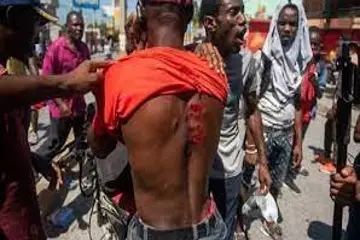Calls are mounting for a dramatic escalation of international involvement in Haiti, as the United States and Panama press the UN Security Council to approve a new multinational force with sharper powers and a larger footprint.
A Force Beyond the Current Limits
The proposal seeks to transform the Kenya-led mission—currently deployed but struggling with limited numbers and funding—into a 5,550-member force. Unlike the initial plan, which envisioned 2,500 troops but has yet to reach even half of that, the new structure would empower personnel to carry out arrests and detentions.
The call reflects a recognition that the mission as it stands has been unable to keep pace with the explosion of gang control. Since the assassination of President Jovenel Moïse in 2021, armed groups have entrenched themselves, extending their reach far beyond Port-au-Prince and now exercising near-total authority over the capital. Their activities—kidnappings, armed assaults, and widespread sexual violence—have destabilized both urban and rural areas.
The Proposed Mandate
The draft resolution envisions the force operating for 12 months, with member states contributing uniformed officers and civilian staff under voluntary funding. Their responsibilities would include:
- Targeted Counter-Gang Operations – Intelligence-led missions to neutralize, isolate, and deter gang activity.
- Critical Infrastructure Security – Safeguarding ports, airports, hospitals, schools, and other key sites.
- Partnership with Local Institutions – Coordinating with Haitian police and armed forces while supporting arms-trafficking interdiction.
This shift would rebrand the mission into what US officials describe as a “Gang Suppression Force.”
A Looming Deadline
The current mandate for the Kenya-led operation expires October 2. Security Council members are expected to deliberate and vote by the end of the month. While the draft resolution acknowledges Kenya’s leadership to date, it underscores that the escalating violence demands a force with greater numbers, sharper tools, and broader authority.
If approved, this would mark one of the most robust international security commitments to Haiti in years—potentially resetting the balance between gangs and fragile state institutions in a country without a sitting president.






